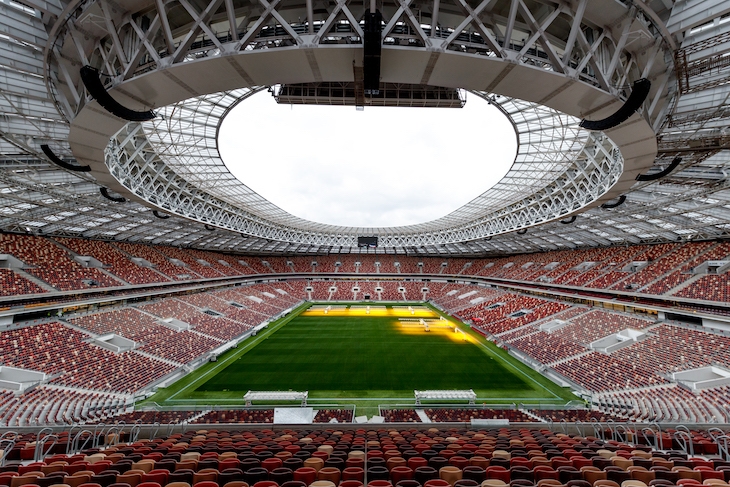Politics and sport should never mix is the hoary old chestnut — but they always do. It’s a thrilling concoction. In just under three weeks, the World Cup kicks off in Russia and while I can’t vouch for the quality of the footie, the whole extravaganza is likely to be edge-of-the-seat stuff. At the end, Vladimir Putin will either be grinning like a creamed-up cat or grinding his teeth in rage, lamenting about what might have been.
Never has there been a backdrop quite like this. A couple of months ago there were calls (including from Alan Johnson, the former Labour home secretary) for England to boycott the tournament altogether.
This wasn’t to save us the pain of going out on penalties in the quarter finals, but because the host nation had just been accused by our Prime Minister of poisoning an ex-spy and his daughter with the deadly Novichok nerve agent in Salisbury.
For a second or two it looked as if Putin might at least pick up a yellow card. ‘While we agree that sport can help build metaphorical bridges, as long as Putin is blowing up real ones in Syria we cannot pretend this World Cup is just like any other major sporting event,’ MEPs said in an open letter, moving swiftly on from Wiltshire to Douma.
As the pace quickened, Boris couldn’t wait to come off the bench and immediately upped the tempo by comparing the Russian World Cup with Hitler’s 1936 Olympics, saying he would hold Moscow responsible for the safety of England fans.
Those fans won’t be getting much assistance from the consular staff in the British embassy in Moscow; most of them have been booted out as part of the tit-for-tat expulsions. Meanwhile, the England gaffer, Gareth Southgate — who apparently watches Newsnight as well as Monday Night Football — has reminded fans they are ‘ambassadors for the country’ as much as the team.








Comments
Join the debate for just £1 a month
Be part of the conversation with other Spectator readers by getting your first three months for £3.
UNLOCK ACCESS Just £1 a monthAlready a subscriber? Log in